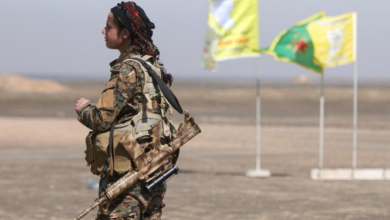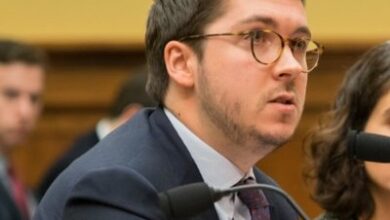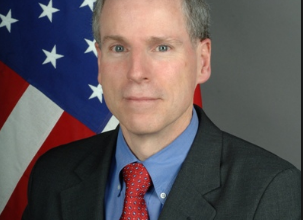
Erdogan’s falling out with the West makes him in need of Moscow
In whose interest is it for Turkish President Recep Tayyip Erdogan to launch a crackdown on judicial, educational, and military institutions, impose a state of emergency, and vow to execute those behind the coup against his Islamist government?
In whose interest is it for Erdogan to establish for himself and his ruling party what can be termed a Sultan’s Guard along the lines of the Republican Guard and the Revolutionary Guard in Saddam’s Iraq and the Mullah regime in Iran respectively? Who wants to petrify Erdogan into purges and liquidations that bypass all transparency and democratic principles? Erdogan may appear victorious at home as he consolidates and expands his powers, but he is effectively under siege both from within and from without. Turkey is still being tested, and Erdogan is leading a deeply destabilized country.
If anything, this is proof of the failure of his approach to governance, beginning with his systematic coup against secularism and the separation of mosque and state. The humiliation of and the assault on the Turkish regular army’s prestige is not to the credit of Erdogan as head of state, but quite the contrary.
Erdogan’s adventures abroad
Even before the coup attempt, the president was deliberately sidelining the army, thus helped dismantle one of the most important institutions of the modern Turkish state and subjecting national security to severe risk just to protect his authoritarian administration even as this opened the door to Kurdish statehood.
Erdogan’s adventures abroad, for example in Egypt and Tunisia where he backed the Muslim Brotherhood overthrow of secular regimes, exposed his regional ambitions and made him a direct interferer in other countries’ affairs. What he has done in Syria is also proof of not only a failed approach but also overconfidence. Indeed, Erdogan was allegedly one of the first to defend Bashar al-Assad from international accountability, when the Syrian dictator stood accused of assassinating Lebanese leaders, journalists, and intellectuals. Then he was the first to sell the illusion that the regime in Damascus could be easily toppled, with a sense of arrogance that has cost others too much. He was also accused of helping spawn extremist fundamentalist and terrorist groups in Syria.
Today, after he chose confrontation with Russian President Vladimir Putin in Syria for a long period of time, before apologizing to him for downing a Russian jet in Syrian airspace, he is gearing up to visit the Kremlin and meet with Putin in the first 10 days of August – battered by the coup attempt and afraid of another, he is willing to make concessions in Syria albeit not in Turkey. The two men have a radical ideological dispute that a transient mandatory partnership will not fix: Putin considers the project of the rise of Islamists to power anathema while Erdogan is the godfather of the project and its expansion into Arab countries, and if he could, into the five Muslim republics surrounding Russia.
The prospects for bargains and deals between the two men are open-ended, particularly since both leaders are suspicious of the United States regardless of who is in the White House, and both are more than keen to teach the Europeans a lesson or two. It is therefore important to have a clear picture of what happened in Turkey on the night of the failed coup. But more importantly, we must scope out the implications of the coup attempt, not just in Turkey but also in the country’s immediate neighbors, the region and the world.
Accusations
Some spoke of an alleged US role in the coup. The inefficient and odd coup also sparked many speculations. Some even accused Erdogan himself of staging the coup to give himself cover to gather more extraordinary powers and eliminate his opponents. Some ask how he managed to survive without being detained or assassinated, whether in Marmaris where he was on holiday or in mid-air as he returned to Istanbul. Others cited Washington’s delayed official reaction as evidence of US complicity whether in staging the coup or in thwarting the coup, both meaning to threaten Erdogan. Everything is possible in our age of contradictory alliances.
In the beginning, US President Barack Obama was a big fan of the Turkish “moderate Islamist” model, to the point that he adopted it and sought to market it. He backed the ouster of former Egyptian President Hosni Mubarak and lent his support to the Muslim Brotherhood administrations that took power in Egypt and Tunisia. Erdogan and Obama were effectively partners in that stage of the Arab Spring, which the Muslim Brotherhood hijacked for their own power-grabbing project from Egypt to Syria via Tunisia, Yemen, and Libya.
Democracy and secularism in Turkey have been toppled not through the failed coup attempt, but at the hands of the rulers who will remain in power
Raghida Dergham
Perhaps the crisis in Syria was the biggest milestone in US-Turkish relations having the biggest role in souring them because of the Kurdish element as well as the Islamic State group (ISIS) and Nusra Front, and Ankara’s alleged ties to such groups. This is not to mention the issue of Syrian refugees, which has been used by Turkey to destabilize Europe.
For one thing, the Kurds are a key element in US anti-ISIS efforts in Syria and Iraq. Washington is supplying Kurdish groups with military assistance and has not accepted Turkey’s request to designate the Kurdistan Workers Party or the Kurdish Democratic Union Party as terror groups, angering Erdogan.
For its part, Washington is angered by what it sees as direct Turkish support for terror groups in Syria, which Erdogan blundered into adopting and blundered into renouncing them too late. In addition, Western capitals accuse Erdogan of deliberately using the Syrian refugee crisis to destabilize Europe, and see him as a de facto partner of Putin in deliberately undermining the European Union.
Another key issue has to do with the Islamic preacher Fethullah Gulen, who lives in Pennsylvania. Erdogan accuses Gulen of masterminding the coup, and has asked Washington to extradite him as a “sponsor of terrorism”. It is not clear what kind of evidence Erdogan will provide in an official request to Washington, and what the US response will be, or how much this will impact US-Turkish relations further.
Nevertheless, it is very unlikely for a direct confrontation to take place between the two NATO allies. Turkey’s Incirlik airbase, used by the US to launch airstrikes against ISIS, will remain vital. That is unless Turkey’s relationship with NATO radically changes, to the point of Turkish withdrawal, unlikely but not impossible especially if European pressures force Erdogan to choose between EU and NATO membership, and adopting further repressive measures to restore his power at home.
Here, improving Turkish-Russian relations could be a gateway to a strategic partnership that could turn the two foes into two reluctant partners. Moscow might adjust to the religious rule in Turkey. Ultimately, Russia and the Islamic Republic of Iran are strategic allies.
But Moscow would most probably not consent to any new attempt by Ankara to destabilize Egypt and re-float the Muslim Brotherhood there, although this could be used by Turkey to bargain. For Putin red lines include having a pledge and guarantees from Erdogan that the Muslim Brotherhood project to seize power will not be implemented in the Muslim republics neighboring Russia. They will also include a demand for active and serious Turkish participation in the fight on ISIS in Syria and the designation of the Nusra Front and similar groups as terrorists, as well as cutting off supplies to Syrian rebels that Moscow sees as its enemies in Syria. Turkish consent to Assad remaining in power, even if temporarily, is also part of Moscow’s demands and Ankara seems willing to oblige, even if Damascus was caught celebrating the attempted coup.
Western pressures
How many of Putin’s demands Erdogan could meet depends on Western pressures and the internal Turkish equation. One of the most important issues that will affect Turkey’s future in NATO has to do with the traditional military establishment that Erdogan has destroyed and replaced with Islamist generals.
Some are asking whether this will create problems for NATO or whether the alliance is willing to coexist with the Islamization of the institutions of the Turkish state, and the implications for the security of NATO?
To be sure, Erdogan has deliberately clipped the wings of the army to re-forge it into an entity loyal to him and his party. He has adopted a strategy of shoring up security and intelligence agencies loyal to him at the expense of the secularist army, rendering the latter an object of derision instead of a symbol of the state and the constitution. So the question is how this will affect Turkey’s membership at NATO level.
Putin may not welcome the Islamization of the Turkish army, but he will not resent much the impact this will have on Turkey’s NATO membership and her growing isolation in Europe, as this would be in Russia’s strategic interests. However, it is important not to underestimate the Russian hostility to the rise of Islamists to power – which will be in the heart of the future of Russian-Turkish relations. It is also important to note the mistrust between the two men.
Each wants the other to have the weaker hand in negotiations. Today, it is Erdogan who has the weaker hand, and Putin will no doubt take advantage if not pleasure as receives his apologetic visit to Moscow, where Erdogan will be panicked about the prospect of another coup during his absence from Ankara and about stronger odds for the success of Kurdish separatism.
Clearly, Erdogan the ‘dictator’ is fit for his Russian counterpart, not only because of the superficial resemblance, but also because of the hostility to the West. Erdogan’s repression will bring him closer to Moscow and make him in a position where he needs more the occupant of the Kremlin. This is not to mention the billion-dollar joint projects that will be brought back into the pipeline after the Turkish apology and the coup attempt, and the coming Turkish-Russian understanding in Syria, in which Aleppo will be the first indicator.
According to reports, Russian intelligence tipped off Erdogan about unusual movements, rescuing him from detention or assassination. If these reports are true, this highlights a major shift in relations between Erdogan, and Russia and Israel, which resumed only two weeks ago and which will grow stronger now. The direct victim will be the Palestinian Authority. For one thing, Hamas will grow more self-confident following the failed coup against the Muslim Brotherhood. For another, Turkish-Israeli relations will improve if the Israelis indeed ‘rescued’ Erdogan.
Egypt will also be impacted by Russian-Turkish rapprochement after the botched coup. Indeed, Egypt had wagered on a confrontation between Turkey, and the US and Europe, as something that would benefit Cairo, but is now concerned by the implications of Russian-Turkish accords.
The reactions from most Gulf states and Iran to the coup attempt were similar, based on the need to respect elected governments and rejecting coups. It is not clear yet whether what happened was an Islamist coup against Islamists in government, bearing in mind that Erdogan and Gulen were once partners in steering Turkey away from secularism; or whether the coup was secular-motivated.
Either way, the claim that the Turkish people took to the streets to support Erdogan and his authoritarianism is wrong. The Turkish people are divided. Some went to the squares in obedience of the orders to humiliate the regular army, many of whom were supporters of the ruling party. But others did so to protect the country from civil war, not to support turning democracy into a tool of tyranny and dictatorship.
Democracy and secularism in Turkey have been toppled not through the failed coup attempt, but at the hands of the rulers who will remain in power on the ruins of civil institutions and the regular army equally.
This article was first published in Al-Hayat on July 22, 2016 and translated by Karim Traboulsi.
_____________________
Raghida Dergham
alarabiya.net



